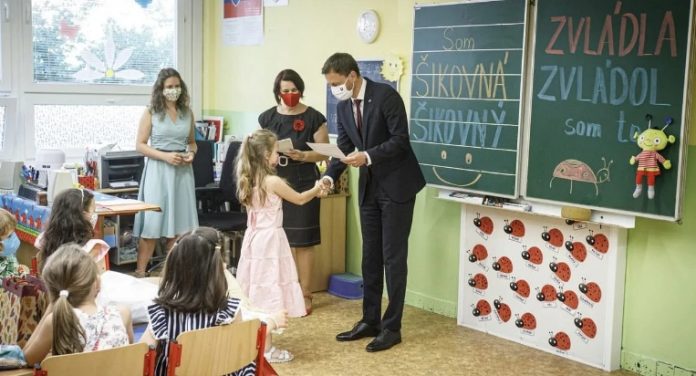Slovak authorities have decided to reform curricula after the results of the latest Programme for International Student Assessment (PISA) showed a significant decline in the skills and performance of Slovak children, which Education Minister Tomáš Drucker called a “national tragedy”, Euractiv reports.
Slovakia is set to introduce a new way of learning, with more than 300 experts working on the concept of reform. Memorisation is a major part of the Slovak school system. Erika Fabiánová, a director of elementary school in Rožňava, said:
We were used to the fact that the teacher spoke 80% of the time in class and children only 20%.
Fabiánová ‘s school has been following a new curriculum since September. She believes that it is very important that children are no longer “passive recipients” of facts.
During the interview, the principal stated that their first graders have started to learn “thematically and holistically”. They receive information through interaction, discussion, and practice, which makes children more curious and proactive.
Slovakia hopes that the new system will help improve children’s learning, especially since the country fell well below the OECD average in the latest PISA assessment.
In 2022, Slovakia had one of the lowest scores in reading and science and the lowest score in maths. It ranked 38th overall and 22nd among EU member states.
During the pandemic, Slovakia had one of the longest school closures in the world. As face-to-face education was interrupted, distance learning was introduced.
Apart from its effectiveness, which is still questioned, distance learning was not equally accessible to all, possibly leading to Europe’s first ‘digital divide verdict’.
A point also made evident by the latest OECD results, as Slovakia has been “singled out as the country with the greatest impact of socioeconomic background on student results,” said Iveta Pichaničová from the Slovak National Institute of Education and Youth (NIVaM).
